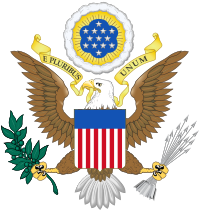Article Three of the United States Constitution

Article Three is a part of the United States Constitution that talks about the judicial branch of government. That means it talks about the courts and judges who help settle disputes and interpret laws.
Think of it like a big rulebook for how judges should do their job. Just like how you might have a rulebook for playing a game or doing chores, the Constitution lays out rules for how judges should act.
One of the most important things Article Three talks about is the Supreme Court, which is the highest court in the country. The Supreme Court is made up of nine judges, and they decide on really important cases that affect the whole country.
But Article Three also talks about the lower courts. These are the courts that people more commonly go to when they have a problem they need help resolving.
Another key thing that Article Three talks about is what kinds of cases the courts can hear. For example, if someone is accused of breaking a federal law (like a law that affects the whole country, not just one state), then that case might go to federal court.
Overall, Article Three is an important part of the Constitution because it helps make sure that the courts and judges are fair, and that they follow certain rules when they make decisions.
Think of it like a big rulebook for how judges should do their job. Just like how you might have a rulebook for playing a game or doing chores, the Constitution lays out rules for how judges should act.
One of the most important things Article Three talks about is the Supreme Court, which is the highest court in the country. The Supreme Court is made up of nine judges, and they decide on really important cases that affect the whole country.
But Article Three also talks about the lower courts. These are the courts that people more commonly go to when they have a problem they need help resolving.
Another key thing that Article Three talks about is what kinds of cases the courts can hear. For example, if someone is accused of breaking a federal law (like a law that affects the whole country, not just one state), then that case might go to federal court.
Overall, Article Three is an important part of the Constitution because it helps make sure that the courts and judges are fair, and that they follow certain rules when they make decisions.
Related topics others have asked about:
